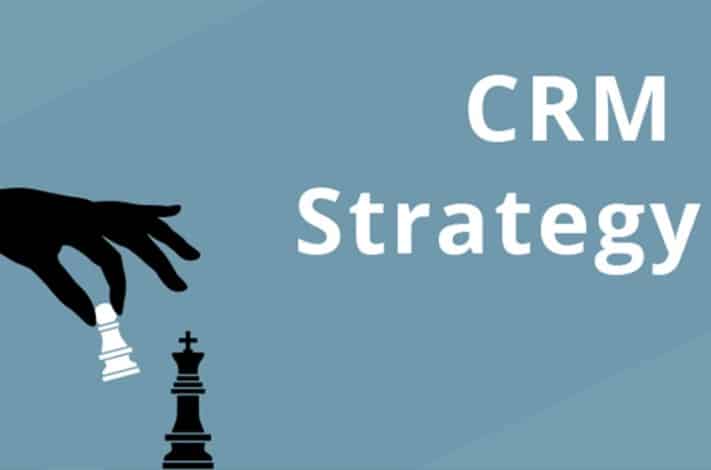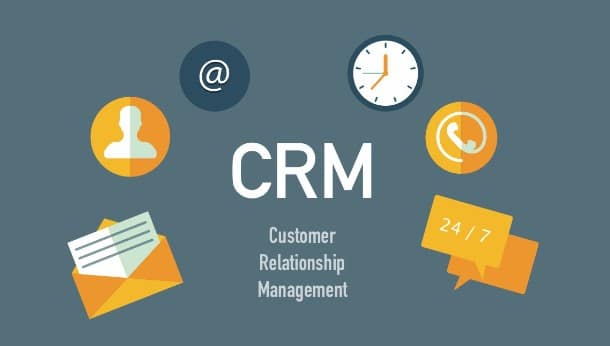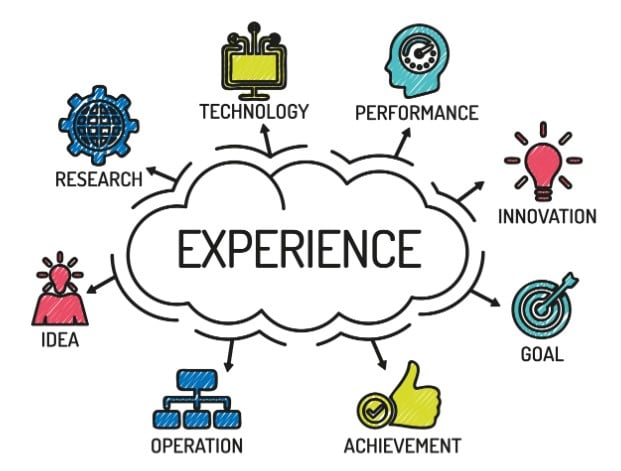Customer Relationship Management (CRM) – In today’s fast-paced business environment, customer relationship management (CRM) has become a crucial aspect of achieving success.
CRM helps businesses build and maintain strong relationships with their customers, ultimately leading to increased customer satisfaction, loyalty, and higher revenues.
To master CRM effectively, businesses need to implement strategic approaches that align with their goals and objectives. In this article, we will delve into ten essential tips that will help businesses excel in CRM and drive sustainable growth.
10 Essential Tips for Business Success

- Understanding the Significance of CRM
- 1.1 What is CRM?
- 1.2 Why is CRM important for businesses?
- 1.3 How can CRM impact business success?
- Setting Clear Objectives and Goals
- 2.1 Defining CRM objectives
- 2.2 Establishing achievable goals
- 2.3 Aligning CRM goals with overall business objectives
- Choosing the Right CRM Software
- 3.1 Assessing business needs
- 3.2 Researching available CRM solutions
- 3.3 Selecting the most suitable CRM software
- Integrating CRM with Existing Systems
- 4.1 Ensuring seamless integration
- 4.2 Maximizing data sharing and accessibility
- 4.3 Overcoming integration challenges
- Training Employees for CRM Adoption
- 5.1 Providing comprehensive training
- 5.2 Demonstrating CRM benefits to employees
- 5.3 Encouraging active participation and feedback
- Data Quality and Management
- 6.1 Maintaining accurate customer data
- 6.2 Regularly updating CRM databases
- 6.3 Implementing data security measures
- Personalization and Customer Engagement
- 7.1 Utilizing customer data for personalization
- 7.2 Implementing targeted marketing strategies
- 7.3 Enhancing customer engagement through CRM
- Analyzing and Utilizing Customer Insights
- 8.1 Utilizing CRM analytics tools
- 8.2 Identifying customer behavior patterns
- 8.3 Tailoring offerings based on insights
- Effective Communication and Customer Support
- 9.1 Establishing efficient communication channels
- 9.2 Responding promptly to customer inquiries
- 9.3 Resolving issues with empathy and professionalism
- Measuring CRM Success and Continuously Improving
- 10.1 Key performance indicators for CRM
- 10.2 Conducting regular performance evaluations
- 10.3 Implementing improvements based on feedback
Understanding the Significance of CRM
1.1 What is CRM?
Customer Relationship Management (CRM) refers to the process of managing interactions and relationships with existing and potential customers. It involves the use of technology, strategies, and practices to analyze customer data and improve customer interactions throughout the customer journey.
1.2 Why is CRM important for businesses?
CRM plays a pivotal role in enhancing customer satisfaction and loyalty, increasing sales, and driving business growth. It allows businesses to better understand their customers’ preferences, needs, and pain points, enabling personalized and targeted marketing efforts.
1.3 How can CRM impact business success?
When implemented effectively, CRM can lead to improved customer retention, reduced customer churn, and higher customer lifetime value. By fostering strong customer relationships, businesses can gain a competitive edge and achieve sustainable success.
Setting Clear Objectives and Goals
2.1 Defining CRM objectives
Before diving into CRM implementation, businesses must define clear and measurable objectives. Whether the aim is to increase customer retention or streamline sales processes, well-defined objectives provide a roadmap for success.
2.2 Establishing achievable goals
Goals should be specific, achievable, relevant, and time-bound (SMART). Realistic goals allow businesses to focus on actionable steps that contribute to CRM success.
2.3 Aligning CRM goals with overall business objectives
CRM objectives and goals should align with broader business objectives. This alignment ensures that CRM efforts contribute directly to the overall growth and success of the business.
Choosing the Right CRM Software
3.1 Assessing business needs
Before investing in CRM software, businesses must evaluate their unique needs and requirements. Understanding specific pain points helps in selecting a CRM solution that addresses those challenges.
3.2 Researching available CRM solutions
Thorough research is essential to identify the available CRM solutions in the market. Evaluating features, customer reviews, and scalability will help in making an informed decision.
3.3 Selecting the most suitable CRM software
After careful evaluation, businesses should choose a CRM software that best aligns with their needs, budget, and long-term business objectives.
Integrating CRM with Existing Systems
4.1 Ensuring seamless integration
Integrating CRM with existing systems, such as marketing automation or email platforms, enhances data flow and eliminates data silos.
4.2 Maximizing data sharing and accessibility
A well-integrated CRM system allows various departments to access and share customer data seamlessly, fostering collaboration and efficiency.
4.3 Overcoming integration challenges
Challenges related to integration should be addressed proactively. This may involve working closely with CRM providers or seeking external assistance.
Training Employees for CRM Adoption
5.1 Providing comprehensive training
Proper training is essential to ensure that employees understand how to use the CRM system effectively. Training sessions should cover all aspects of CRM functionality.
5.2 Demonstrating CRM benefits to employees
Showcasing the benefits of CRM to employees fosters enthusiasm and promotes active participation in CRM-related activities.
5.3 Encouraging active participation and feedback
Encouraging employees to actively engage with the CRM system and provide feedback facilitates continuous improvement and optimization.
Data Quality and Management
6.1 Maintaining accurate customer data
Accurate and up-to-date customer data is crucial for effective CRM implementation. Regular data verification and cleansing are necessary to maintain data integrity.
6.2 Regularly updating CRM databases
Businesses must establish processes to ensure that customer data is regularly updated and reflects the latest customer interactions.
6.3 Implementing data security measures
Protecting customer data through robust security measures builds trust and confidence among customers.
Personalization and Customer Engagement
7.1 Utilizing customer data for personalization
Leveraging CRM data allows businesses to offer personalized experiences and recommendations to customers.
7.2 Implementing targeted marketing strategies
Segmenting customers based on CRM insights enables targeted marketing campaigns that resonate with specific customer groups.
7.3 Enhancing customer engagement through CRM
Effective CRM empowers businesses to engage with customers across multiple channels, fostering long-term relationships.
Analyzing and Utilizing Customer Insights
8.1 Utilizing CRM analytics tools
CRM analytics provides valuable insights into customer behavior, preferences, and trends.
8.2 Identifying customer behavior patterns
Analyzing customer data helps businesses identify behavioral patterns, enabling tailored approaches.
8.3 Tailoring offerings based on insights
Using CRM insights, businesses can tailor their products and services to better meet customer needs.
Effective Communication and Customer Support
9.1 Establishing efficient communication channels
Accessible communication channels facilitate seamless interaction between businesses and customers.
9.2 Responding promptly to customer inquiries
Timely responses to customer inquiries demonstrate attentiveness and commitment to customer satisfaction.
9.3 Resolving issues with empathy and professionalism
Handling customer issues with empathy and professionalism enhances customer trust and loyalty.
Measuring CRM Success and Continuously Improving
10.1 Key performance indicators for CRM
Businesses should establish key performance indicators (KPIs) to measure the success of CRM efforts.
10.2 Conducting regular performance evaluations
Regular evaluations allow businesses to identify areas of improvement and refine their CRM strategies.
10.3 Implementing improvements based on feedback
Feedback from customers and employees should be incorporated to enhance the effectiveness of CRM practices.
Conclusion
Mastering CRM is a vital aspect of achieving long-term business success. By understanding the significance of CRM, setting clear objectives, choosing the right CRM software, integrating it seamlessly, and prioritizing employee training, businesses can build strong customer relationships and foster sustainable growth.
Data quality and personalization play crucial roles in engaging customers, while customer insights and effective communication contribute to better decision-making.
Continuous improvement and measuring CRM success enable businesses to stay competitive and adaptive in an ever-changing market landscape.
Read More :
 Pmbmalahayati.id Media Informasi Terupdate Masa Kini
Pmbmalahayati.id Media Informasi Terupdate Masa Kini





